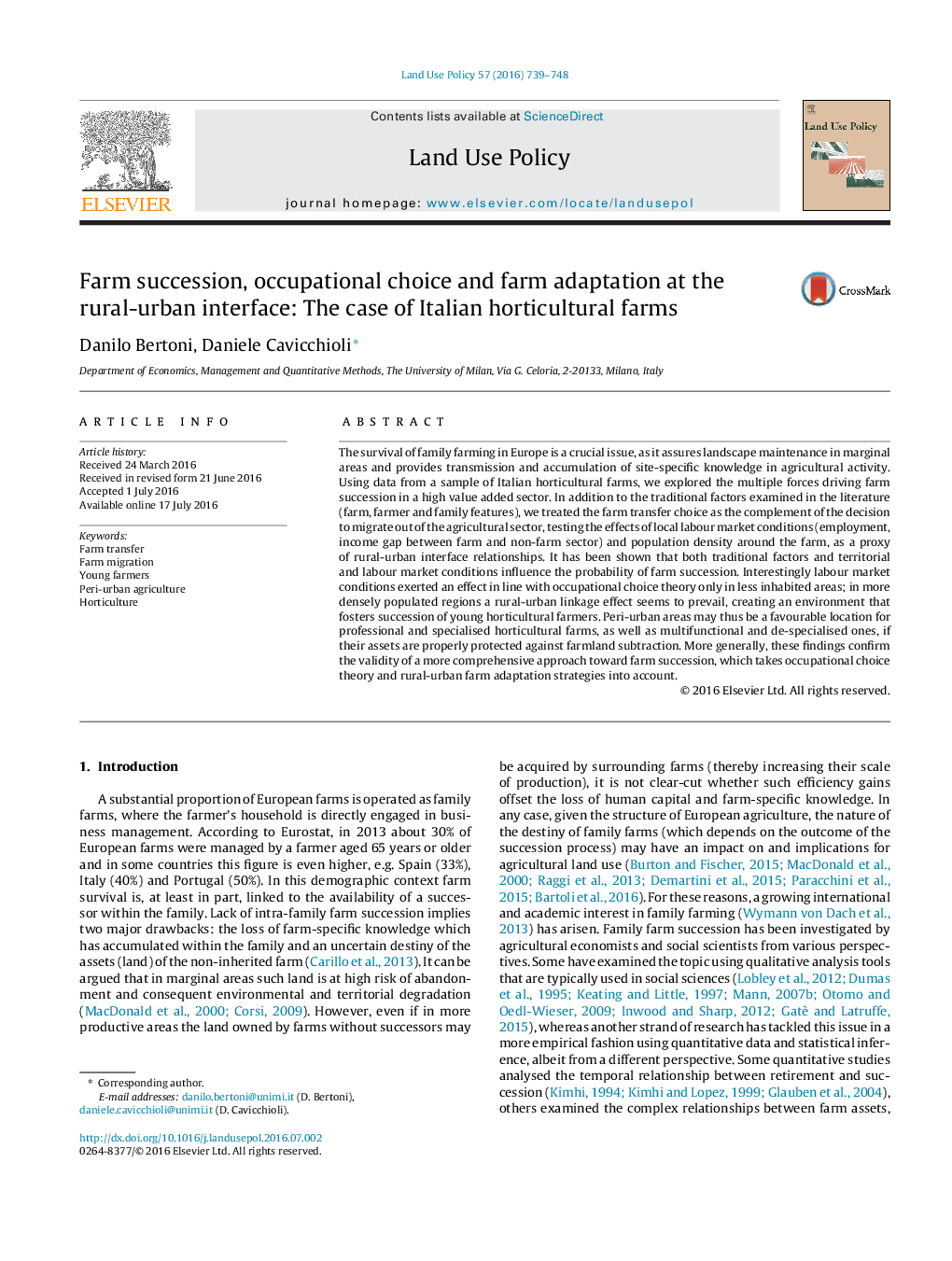| Article ID | Journal | Published Year | Pages | File Type |
|---|---|---|---|---|
| 6547132 | Land Use Policy | 2016 | 10 Pages |
Abstract
The survival of family farming in Europe is a crucial issue, as it assures landscape maintenance in marginal areas and provides transmission and accumulation of site-specific knowledge in agricultural activity. Using data from a sample of Italian horticultural farms, we explored the multiple forces driving farm succession in a high value added sector. In addition to the traditional factors examined in the literature (farm, farmer and family features), we treated the farm transfer choice as the complement of the decision to migrate out of the agricultural sector, testing the effects of local labour market conditions (employment, income gap between farm and non-farm sector) and population density around the farm, as a proxy of rural-urban interface relationships. It has been shown that both traditional factors and territorial and labour market conditions influence the probability of farm succession. Interestingly labour market conditions exerted an effect in line with occupational choice theory only in less inhabited areas; in more densely populated regions a rural-urban linkage effect seems to prevail, creating an environment that fosters succession of young horticultural farmers. Peri-urban areas may thus be a favourable location for professional and specialised horticultural farms, as well as multifunctional and de-specialised ones, if their assets are properly protected against farmland subtraction. More generally, these findings confirm the validity of a more comprehensive approach toward farm succession, which takes occupational choice theory and rural-urban farm adaptation strategies into account.
Related Topics
Life Sciences
Agricultural and Biological Sciences
Forestry
Authors
Danilo Bertoni, Daniele Cavicchioli,
